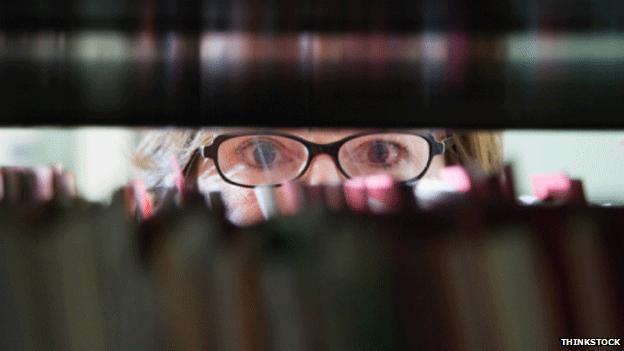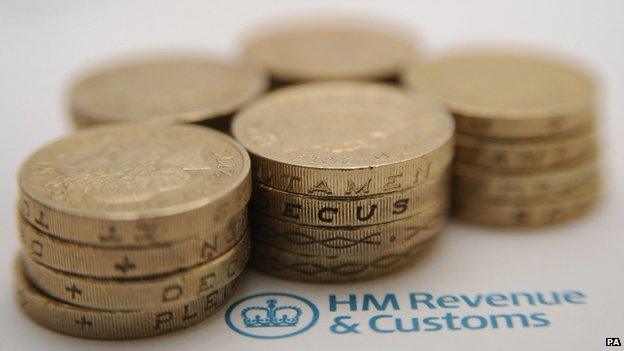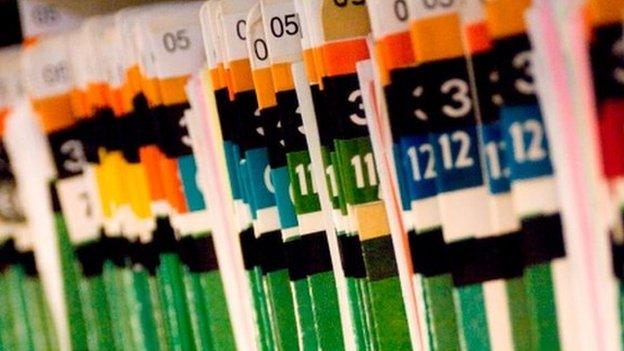The knowing me, knowing you ID debate
- Published

The debate about data access has been hotly debated by politicians and interest groups in Scotland
Not sure about you but I tend to provide the minimum information possible when I am completing official forms. Probably futile, I know, but I have this vague aversion to opening up too much.
You know the sort of thing. You are checking in to an hotel or registering for council tax.
The form asks you to supply: your address, your email address, your mobile number and your shoe size. Together with information about the number of ferrets you keep: a) in cages; or b) in large pens.
I always try to get away with the least possible information, suspecting that it is all just a ruse to pursue me later with marketing campaigns designed to sell me: a) mobile phones; b) shoes; or c) ferrets.
I say that it is probably futile because our data is dogged - and logged - on all sides. Aha, I can hear a public servant pronounce, so he's a minimalist, is he? Let's see how he copes with Form SC23/UB/4. We'll sniff out that ferret tally, see if we don't.
Willie Rennie: "It is only one small step away from creating an identity card."
This topic arose at Holyrood today - data protection, that is, not ferrets, sadly - as MSPs debated a proposal to allow more public bodies to authenticate information about folk in order to guarantee that we are who we say we are.
Strictly speaking, they were debating the extent and scope of their debate - in that Willie Rennie of the Liberal Democrats wanted the proposed change to be subject to primary legislation, requiring extensive scrutiny, rather than carried through committee.
John Swinney: "I can make it absolutely clear we are not establishing a new data base."
But it was rather a fine discussion for all that, principled and thoughtful. Intellectually elevated on occasion - such as when Liz Smith of the Tories cited Hobbes and Locke.
Not often, in truth, that Leviathan or the Essay concerning Human Understanding get much of a showing at Holyrood. But they did today and the chat was the better for it.
What is being proposed is that basic data about us already held in the NHS register should be made available more widely. Or, more precisely, that some 120 public organisations should be able to check our identity, particularly when we are trying to access services online.
The Finance Secretary John Swinney stressed repeatedly that this was not a new data base. That the NHS register dated back to the 1950s. That it was a convenient method of checking identity - not accessing sensitive data and certainly not our health records.

The data plan would enable government and HMRC to prepare for new Holyrood powers, ministers say
And that the register had already been used to check access to concessionary travel: a measure, he noted, which had been introduced by a Liberal Democrat minister. At which point, he glanced purposefully at Mr Rennie.
The second purpose was to enable government and HMRC to prepare for the new powers which oblige Holyrood to set a Scottish rate of income tax, possibly variant from the UK norm.
It would be vital in these circumstances to identify precisely who is liable for the Scottish rate. An error of one per cent in that head count, he said, would cost the Scottish coffers £50m.
Unique number
In opening, Mr Rennie had accepted that identity checks were vital. But he urged other methods. He said the new plan was too large in scale. Why, he questioned, should information about us be divulged to Quality Meat Scotland or the Botanic Gardens?
Further, he said the plan involved the use of a unique number and did not require the consent of individuals. In voicing these concerns, the Lib Dems had the backing of other opposition parties.
Mr Rennie closed by arguing that the move was "creeping towards" the destination of an ID card. Not so, stressed Mr Swinney repeatedly, not so.
Indeed, the Minister gave two guarantees. An "unequivocal commitment to the protection of privacy" and a pledge to hear and consider all representations before taking decisions.
When the debate concluded, our tribunes headed off, no doubt to consult their well-thumbed copies of Locke or, better still, Hume.
- Published4 March 2015
